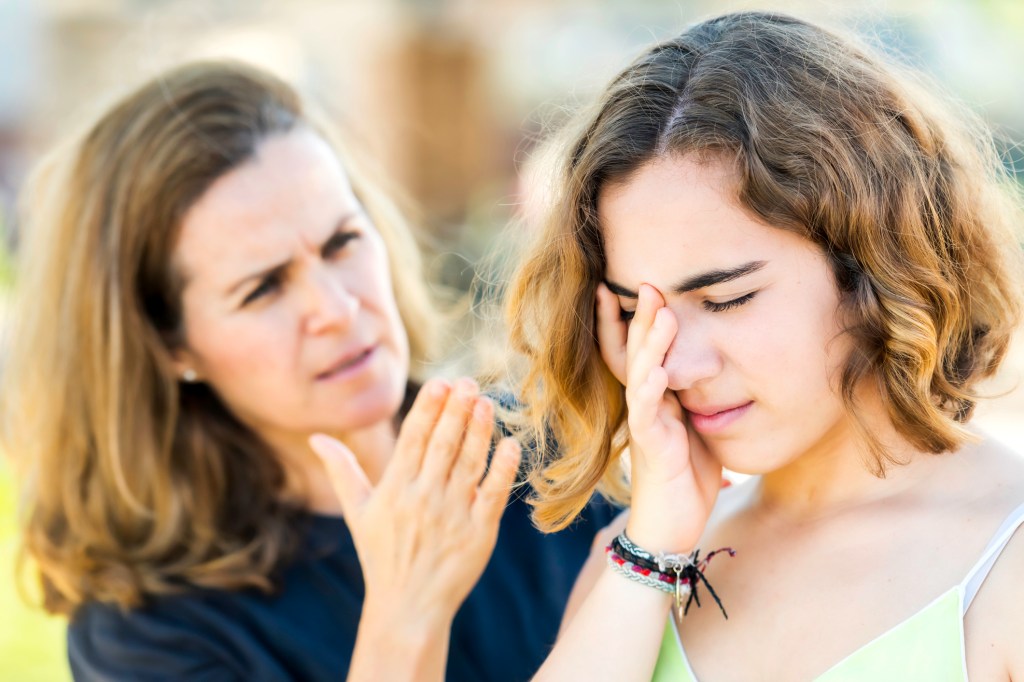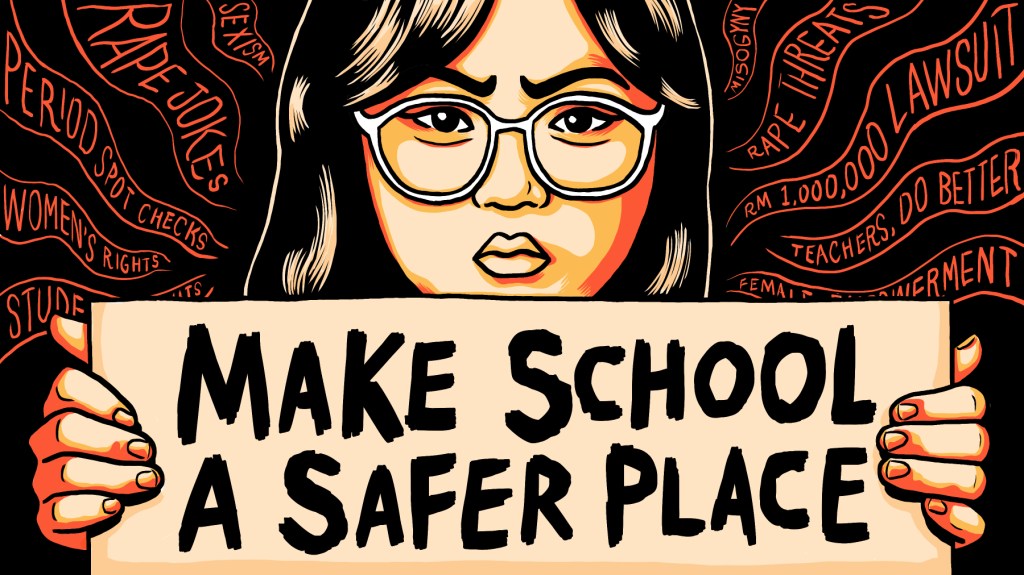“We fight like mothers and daughters, but we also love like mothers and daughters, and I do love her,” Claudia Conway, 16, said in a TikTok posted Tuesday. Her father, George Conway, delivered Claudia’s message to Twitter—presumably so the adults could see it and pause the speculation that had been churning since Monday night. Claudia’s mother, former Trump senior advisor Kellyanne Conway, has yet to comment on the latest public conflict between herself and her daughter—this time, revolving around footage posted to TikTok of the elder Conway screaming at her daughter, a police visit to the Conway family home on January 20, and a topless photo of the minor Conway briefly posted to her mother’s Twitter account.
Claudia first gained a following online for her frank, rude, flip, and deeply Gen Z attitude towards her mother and the president Kellyanne notoriously bent over backwards to protect. Liberal adults were also eager to elevate the teenager to #ResistanceHero status when she revealed Kellyanne contracted COVID-19 sometime after socializing, maskless, with Donald Trump. Rachel Millman, writing for VICE in October, called the buzz around Claudia “the latest in the unfortunate contemporary trend of adults crowing, ‘Gen Z will save us!’” adding that “Claudia isn’t leaking state secrets on TikTok out of some Christlike martyrdom; she has immediate personal circumstances contributing to her participation.”
Videos by VICE
Since then, those personal circumstances seem to have grown increasingly pressing. Her fraught relationship with her mother has continued to be the subject of many of Claudia’s TikToks, their enmity the center of the joke. Sometimes, it seems like Kellyanne is in on the fun—like when she rolls her eyes in the background of a video where Claudia struts to a song with the refrain, “Piss on Donald Trump!”
It’s unclear what the consequences Kellyanne will face for her behavior—but according to experts, the impact on Claudia, and other minors who experience hurtful, disrespectful, belittling treatment from a parent or parents, is clearer. “[Teenagers] are very susceptible to what other people tell them,” Michelle Miller, child abuse clinician and mental health project coordinator for the National Children’s Alliance, told VICE. “So if you have a teenager with a parent who says, ‘You’re stupid, you’re lazy, you’re no good, you’re never going to amount to anything,’ they actually internalize that, and that can become their view of themselves.”
Jane Nelsen, a parent educator and founder of Positive Discipline, said that that kind of talk can permanently alter a young person’s worldview. “If kids don’t have a foundation of love and support at home, if they don’t feel belonging or significance, they’re going to grow up with a lot of self-esteem issues,” Nelsen said. Nelsen stressed collaboratively drawn boundaries for children and teenagers, rather than a system of punishment, in order to foster openness and give young people a sense of autonomy. “We really are at a time where everybody wants to be treated with equality, dignity, and respect, and it really needs to start in the home,” she said.
When that respect is absent, and a fight once in a blue moon becomes the accepted state of affairs, bad parental behavior can enter the realm of emotional abuse. According to Miller, emotional abuse enacted on a child by a parent has two major sides. There’s psychological aggression—like yelling, name-calling, threatening, public shaming—and emotional neglect.
Nelsen said she finds herself having to remind clients of the damage that kind of punishment-oriented parenting can render. “One of my quotes that people use a lot is: Where did we ever get the crazy idea that in order to make children do better, first, we have to make them feel worse?” she said. “I always say to adults, ‘Do you feel like doing better with somebody has shamed you and put you down and made you feel bad?’ Because the truth is, children do better when they feel better.”
Miller said the urge to explain away ugly arguments as fighting “like mothers and daughters” do, might be familiar to anyone who’s experienced it, thanks to desensitization. “There’s that whole ‘you don’t know what you don’t know’ thing,” Miller said. “You can think that the way your family functions is how other families function. Until young people see something different, then they can question whether or not is this how everybody acts, whether this is what every mother-daughter relationship is like, or if this is this different.”
Miller also noted that being on the receiving end of this kind of treatment isn’t normal, and can lead to distinct symptoms even in the short term: Depression, anxiety, low self-esteem, and even somatic complaints like frequent headaches or stomach aches.
The tipping point from normal conflict into emotional abuse can be especially hard to detect, both for the young person experiencing it and any onlookers who happen to see it. “Physical abuse and sexual abuse is very impactful, right? It’s not to take any of that away. But emotional abuse can actually be more impactful on that teenager,” Miller said. “I’ve been in child welfare for a long time, and emotional abuse can also be more difficult to validate… it can be harder for child welfare to investigate and substantiate than some of the other abuses.”
Seeing Claudia—a white teenager who is the daughter of wealthy, powerful parents—deal with mistreatment from her mother shouldn’t discourage others going through the same thing from seeking help. Miller recommended that bystanders to this kind of behavior reach out to local child protective services and child advocacy organizations, and that young people themselves confide in a trusted adult, like a mental health professional or school guidance counselor. And if watching a parent treat a child viciously is dredging up some emotions for you, Miller said that’s absolutely normal—but that it could be a sign of some deeper trauma.
“When [something like Kellyanne and Claudia’s conflict] is playing out and someone else has had a similar experience, it definitely can activate their own trauma experience,” Miller said. “That’s what happens when we’ve been traumatized.”
If you think you or a loved one may be experiencing child abuse, you can call the ChildHelp National Child Abuse Hotline 1 (800) 422–4453 or visit their website, childhelp.org.
Follow Katie Way on Twitter.




